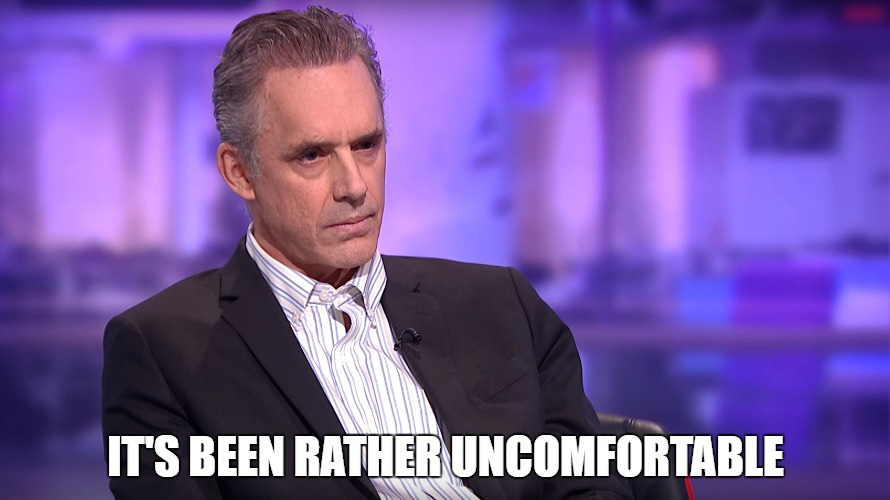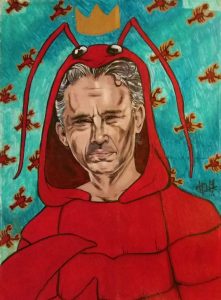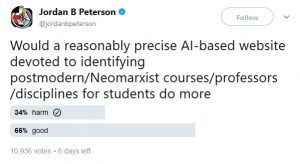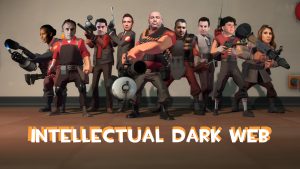
By Matt Sheedy
Hmmm, perhaps a better title would have been, “That time I saw Jordan Peterson go ‘full beast mode’” … no wait, “Six times JP destroyed Marx and the radical left!” I can’t decide which one is more click-baity? At any rate, I’ve made my choice and it’s my responsibility to learn from the consequences. [1]
The following three-part series provides a first-hand account of one stop on Jordan Peterson’s recent 45-city tour promoting his bestselling book 12 Rules for Life: An Antidote to Chaos, with popular political commentator Dave Rubin. In part one I provide some background on the Peterson phenomenon, followed by a detailed account of one of his rallies in part two. Part three offers some thoughts on how we might situate this phenomenon within broader cultural trends, with a tidbit on my own experience sitting in on a few of Peterson’s classes during my undergraduate years at the University of Toronto.
For those unfamiliar with Peterson (and the fandom that surrounds him) he is a professor of psychology at the University of Toronto who rose to prominence in September of 2016 after he publicly denounced the Canadian government’s Bill-C-16, which proposed to add “gender identity or expression” as a form of discrimination under the Canadian Human Rights Act. Central to Peterson’s objection was his fear that citizens might be compelled by the state to use the preferred pronouns of transgender people, which he wrote about in an op-ed, “The right to be politically incorrect,” as follows:
I will never use words I hate, like the trendy and artificially constructed words “zhe” and “zher.” These words are at the vanguard of a post-modern, radical leftist ideology that I detest, and which is, in my professional opinion, frighteningly similar to the Marxist doctrines that killed at least 100 million people in the 20th century.
A deluge of international media attention followed after a public debate between Peterson and student-activists at the University of Toronto went viral. Sympathetic platforms like 4Chan and Reddit lauded Peterson as a “free speech hero,” while the student-activists were framed as an embodiment of the so-called “post-modern, radical leftist ideology.”

It was likely this image of a neatly dressed and articulate professor single-handedly taking on a band of so-called “social justice warriors” in an outdoor forum that propelled Peterson to near-rock star status among a loose-knit group of (mostly) young, (mostly) white men (sometimes referred to as “free speech warriors”) who contest the proliferation of ‘liberal’ narratives on gender and sexual identity, white privilege, racism, etc., and have come to view Peterson as the vanguard of resistance to these trends. [2]
For cultural critic Angela Nagle, the Peterson phenomenon is part of a larger cultural formation that is deeply influenced by male-dominated on-line communities, which she describes in her book Kill All Normies (2017) as follows:
This on-line backlash was able to mobilize a strange vanguard of teenage gamers, pseudonymous swastika-posting anime lovers, ironic South Park conservatives, anti-feminist pranksters, nerdish harassers and meme-making trolls whose dark humour and love of transgression for its own sake made it hard to know what political views were genuinely held and what were merely, as they use to say, for the lulz (1-2).
To what extent Peterson and his fellow-travellers fall-in to most or at least some of these categories is an important question to grapple with, especially as cultural formations like the “alt-right” and the “alt-lite” have become increasingly popular identity markers, along with a revival of the term “classical liberal,” which Peterson himself prefers (see Dave Rubin’s definition here).

Peterson quickly cashed in on this attention on YouTube (according to one recent interview, his videos have been viewed over 150 million times), followed by numerous media appearances, including on Fox and Friends, Real Time with Bill Maher, and Channel 4 in the UK, which went viral after Peterson clashed with host Cathy Newman over his claim that hierarchies are a natural by-product of social organization, from lobsters to humans, and not a construction of the “Western patriarchy.” Thus a legion of lobsters memes was born. [3]

Peterson also made waves when he proposed to create a website that would call out postmodern/Neo-Marxist professors on university campuses, and provide a warning system for prospective students so that they could avoid taking their classes (see extensive commentary here). Following this he came under fire after an interview with The New York Times, where he suggested that the solution to the “incel” (“involuntary celibates”) problem among young men was “enforced monogamy.” This statement was among several controversies related to gender and sexuality that Peterson has been embroiled in (e.g., see this Vice interview and his talk with Camille Paglia). Most recently, he filed a lawsuit against Kate Manne, a professor of philosophy at Cornell University, for “libelling” him a misogynist (see the interview here) as first reported on The Cut on September 20, 2018. [4]

Peterson has also been a fixture on popular podcasts such as Dave Rubin, Joe Rogan, Ben Shapiro, Sam Harris, and Charlie Kirk of Turning Points USA, and has become a key figure in what some have called the “intellectual dark web.” This term, coined by Eric Weinstein, and popularized by Bari Weiss in her New York Times article, “Meet the Renegades of the Intellectual Dark Web,” refers to a group of intellectuals (e.g., Sam Harris, Ben Shapiro, Maajid Nawaz, Ayaan Hirsi Ali, and of course Peterson) who’ve made waves on social media for their staunch support of “free speech” over “political correctness” and “identity politics,” especially as it plays out on university campuses. [5]
Indeed, media fascination with Peterson—whom David Brooks of The New York Times has referred to as the most important public intellectual in the West—seems to have no end, from the highly popular Monk Debates at the University of Toronto this past May, to his more recent claims to be on an “all meat” diet, which he has promoted alongside his daughter Mikhaila on The Joe Rogan Experience, one of the most popular podcasts in the United States.
Contrary to some predictions that Peterson would flame out after his 15 minutes of fame was up, he’s been able to maintain a prominent place in the spotlight for over two years now and does not appear to be slowing down any time soon.
Stayed tuned for part two of this two-part series, where I detail my first-hand account of one of Peterson’s rallies, and conclude with some thoughts on why he continues to appeal to a growing number of devotees …
[1] Photo credit: https://knowyourmeme.com/photos/1334709-jordan-peterson
[2] Photo credit: https://thevarsity.ca/2016/10/17/tensions-flare-at-rally-supporting-free-speech-dr-jordan-peterson/
[3] Photo credit: https://www.deviantart.com/timeghost00/art/Dr-Jordan-B-Peterson-King-of-the-Lobsters-728268750
[4] Photo credit: https://twitter.com/jordanbpeterson/status/929187145746542592?lang=en
[5] Photo credit: https://www.memecenter.com/fun/7228856/because-the-amp-039-intellectual-dark-web-amp-039-is-now-a-thing-it-had-to-be-done
